This spring, we honor eight recipients who deliver exceptional research and education at the cutting-edge of innovation and collaboration. Their chairs are made possible through the support of generous donors who value the contributions that our outstanding faculty make to the university and society at-large.
Join President Jahanian, Provost Garrett, the recipients and their deans to celebrate this important milestone.
Register by Wednesday, May 5
You are required to register for this event. A Zoom login link will be provided in a confirmation email.
If you have a disability and require accommodations for this event, please contact Katie Morris at katiemor@andrew.cmu.edu. For general event questions, please contact CMUevents@andrew.cmu.edu.
About the Recipients and Donors
College of Engineering
|
Maysam Chamanzar
Dr. William D. and Nancy W. Strecker Assistant Professor of Electrical and Computer Engineering
Maysam Chamanzar joined Carnegie Mellon University in 2016 as an assistant professor of electrical and computer engineering. He is now running an interdisciplinary research program at the interface of neural engineering, nanotechnology and photonics to design next generation neural interfaces. Before joining CMU, Dr. Chamanzar was with the EECS department at UC Berkeley as a postdoc researcher and then as a research scientist.
His current research is focused on multimodal (optical, electrical and acoustic) neural interfaces to study the neural basis of brain function and dysfunction and design next-generation brain-machine interfaces. His lab has pioneered the design of a fully flexible photonic platform, called Parylene Photonics, that can be used in a gamut of applications ranging from wearable photonics to implantable optoelectronics. His breakthrough research on ultrasonically defined virtual optical waveguides has opened up new opportunities for non-invasive optical manipulation and endoscopic imaging. His group has published a few high-impact papers on this subject.
Dr. Chamanzar has published more than 30 refereed papers and articles and holds six patent applications in the areas of neural engineering and nanophotonics. He is the associate editor of the journal of Nanophotonics and has serves as the associate editor of IEEE NER. He is the recipient of a number of awards, including the National Science Foundation CAREER Award, SPIRA Excellence in Teaching Award, SPIE Research Excellence Award, the Sigma-Xi Best Thesis Award, the IEEE BRAIN Award and the ECE HKN Excellence in Teaching Award.
|
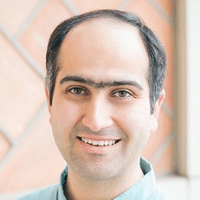
|
|
Dr. William Dr. And Mrs. Nancy W. Strecker
Dr. William D. Strecker and Mrs. Nancy W. Strecker established the Dr. William D. and Nancy W. Strecker Career Development Professorship in 2012 to support future generations of information technology professionals by targeting early career professorial excellence at Carnegie Mellon University. Dr. Strecker earned a bachelor of science degree in 1966, a master of science degree in 1967, and a doctorate in 1971, all in electrical engineering, from the Carnegie Institute of Technology, now the College of Engineering. Through their generous support, the Streckers have also established the Dr. William D. Strecker and Nancy W. Strecker Deanship in the College of Engineering.
|
|
|
Pulkit Grover
Angel Jordan Associate Professor of Electrical and Computer Engineering
Pulkit Grover works toward developing and experimentally validating a new theory of information for efficient and reliable communication and computing, fair machine-learning and reverse-engineering biological systems. To apply these ideas to a variety of problems including ethical AI and novel biomedical systems, his lab works extensively with data scientists, system and device engineers, neuroscientists and clinicians. Specifically, work in his lab is focused on fair AI at algorithm, theory and hardware level as well as theoretical, computational, and hardware tools for understanding, diagnosing and treating disorders such as epilepsy, stroke, Parkinson's and traumatic brain injuries. His work has helped identify novel solutions such as noninvasive neural imaging and neuromodulation at unprecedented resolution; the first algorithms for localizing silences in the human brain noninvasively and detecting cortical spreading depolarizations; the first solutions for EEG recordings for reliable Black patients (current EEG systems are incompatible with their hair-type); and solutions to long-standing problems in control, communication and distributed computing. Dr. Grover is leading the SharpFocus team in response to DARPA’s Next-generation Nonsurgical Neurotechnology (N3) challenge, one of the three teams attempting to sense/stimulate the human brain noninvasively at unprecedented resolution.
Dr. Grover received the 2010 best student paper award at IEEE Conference on Decision and Control; the 2011 Eli Jury Dissertation Award from UC Berkeley; the 2012 Leonard G. Abraham best journal paper award (IEEE ComSoc); a 2014 NSF CAREER award; a 2015 Google Research Award; a 2018 inaugural award from the Chuck Noll Foundation for Brain Injury Research; the 2018 Spira Excellence in Teaching Award (CMU), and the 2019 best tutorial paper award (IEEE ComSoc). He earned his Ph.D. from UC Berkeley and a B.Tech and M.Tech from IIT Kanpur. He’s learning how to play the sax and enjoys his free time with his wife, Kristen, and son, Utsah.
|
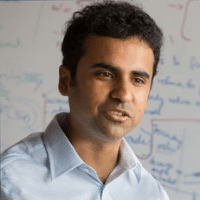
|
|
Angel Jordan
Angel Jordan served as head of the Department of Electrical and Computer Engineering from 1969 to 1979, later serving as dean of the College of Engineering (1979–1983) and as provost of the university (1983–1991). As university professor emeritus, he remained active in electrical and computer engineering and in the Robotics Institute that he helped to establish until his death in 2017.
Graduating from Carnegie Mellon University's College of Engineering in 1959, Dr. Jordan made Carnegie Mellon his life's work. His pioneering research and technical leadership helped create one of the first university research laboratories in semiconductor devices. As an administrator, he was one of the leaders in the transformation of Carnegie Mellon into a prominent world-class educational and research institution. He championed the formation of the Robotics Institute and was instrumental in attracting the Software Engineering Institute to the Pittsburgh campus.
Dr. Jordan was elected to the National Academy of Engineering in 1986 for his contributions to solid-state device research and for innovative leadership in engineering education. He advised 26 Ph.D. students who have all gone on to successful careers. The Angel Jordan Career Development Professorship in Electrical and Computer Engineering was created in 2013 by former students of Dr. Jordan as well as faculty and staff in recognition of his vital contributions and critical partnership in creating solid foundations for their careers.
|
|
|
Carlee Joe-Wong
Robert E. Doherty Assistant Professor of Electrical and Computer Engineering
Carlee Joe-Wong is an assistant professor of electrical and computer engineering. She received her A.B. in mathematics and M.A. and Ph.D. degrees in applied and computational mathematics from Princeton University in 2011, 2013 and 2016, respectively.
Dr. Joe-Wong is broadly interested in optimizing networked systems with a particular focus on applications of machine learning and pricing in wireless, computing and transportation networks. From 2013 to 2014, she was the director of advanced research at DataMi, a startup she co-founded from her Ph.D. research on mobile data pricing. She received the Army Research Office Young Investigator Award in 2019, the National Science Foundation CAREER Award in 2018, the INFORMS ISS Design Science Award in 2014 and the Best Paper Award at IEEE INFOCOM 2012. She has received multiple honorary fellowships for her research, including the Porter Ogden Jacobus Fellowship in 2016, Princeton University’s highest honor for doctoral students and the National Defense Science and Engineering (NDSEG) Graduate Fellowship from 2011 to 2013.
|
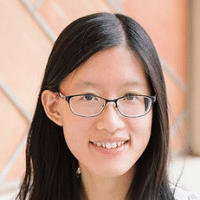 |
|
Robert E. Doherty
The Robert E. Doherty Career Development Professorship in Engineering was proudly named to honor the history of Carnegie Mellon University and the College of Engineering. Robert Doherty was an electrical engineer and the third president of the Carnegie Institute of Technology, which is now the Carnegie Mellon College of Engineering, serving from 1936 to 1950. His service to the university is recognized, in part, through the naming of Robert E. Doherty Career Development Professorship.
The Robert E. Doherty Career Development Professorship was established by the College of Engineering to recognize early career faculty for their vital contributions to research and academics in the College of Engineering. This career development professorship is funded by an endowment created from proceeds arising from a patent on technology created by Dr. José Moura and Dr. Aleksander Kavčić.
|
|
|
Rahul Panat
Russell V. Trader Associate Professor of Mechanical Engineering
Rahul Panat is an associate professor of mechanical engineering. He completed his Ph.D. in theoretical and applied mechanics from the University of Illinois at Urbana in 2004. He then joined Intel Corporation’s R&D unit in Chandler, Arizona, where he worked for a decade on microprocessor manufacturing.
At Intel, Dr. Panat led a team of engineers that developed the manufacturing process for world’s first halogen-free IC chip. He returned to academia and joined Washington State University from 2014 to 2017 before joining CMU in fall 2017.
Dr. Panat’s research is focused on nanomaterial 3D printing and its applications in biomedical engineering, stretchable electronics and Li-ion batteries. Since joining CMU, he has received funding of more than $3.5 million as a principal investigator at CMU from the National Institute of Health, Department of Energy, National Science Foundation and U.S. Army, in addition to industry and several foundations. Dr. Panat is a recipient of several awards, including MRS gold medal, Mavis Memorial Award and an award at Intel for his work on the halogen-free chip.
|
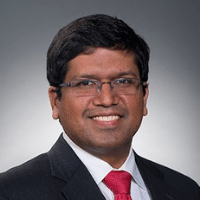 |
|
Rachel S. Trader
This professorship was established through the generosity of Rachel S. Trader, wife of the late Russell V. Trader, to provide support to faculty members in the Department of Mechanical Engineering. Mr. Trader was a 1920 graduate of the Carnegie Institute of Technology.
|
|
College of Fine Arts
|
Stephen Neely
Milton and Cynthia Friedman Assistant Professor of Music
Stephen Neely is a teacher, conductor, theorist and clinician who lectures and presents workshops in the fields of design, music, architecture and pedagogy. He is a dynamic speaker-teacher-writer who enjoys traveling to present hands-on workshops and clinics in the United States and around the globe that focus on the overlaps between music, design, the body, esthetics, performance and experience. He is the director of the Carnegie Mellon Marta Sanchez Dalcroze Training Center and director of the Pre-College programs at the School of Music. He teaches all of the Dalcroze Eurhythmics and Dalcroze Pedagogy courses for the School of Music and has taught every BFA student in music performance and composition at CMU since 1999. He taught Dalcroze Eurhythmics and directed the Opera Workshop at Pittsburgh's High School for the Creative and Performing Arts for 23 years (1994-2018) and served as chorusmaster for Opera Theater of Pittsburgh from 1999 to 2010. He was featured as the Hangman in Leonardo Balada’s early operas “Hangman, Hangman” and the world premiere of “The Town of Greed” for the Naxos label, and was a featured speaker at TEDxCMU 2012. He is co-founder and co-host of the Virtual Dalcroze Meet-up and past President of the Dalcroze Society of America. Dr. Neely completed the Ph.D. in design at the Carnegie Mellon School of Design in 2019.
|

|
|
Cynthia Friedman
Cynthia Friedman established the Milton and Cynthia Friedman Endowed Career Development Professorship in Music in 2019, to benefit a junior faculty member seeking tenure in the School of Music. Ms. Friedman is a Carnegie Mellon Board of Trustee Emeritus. The late Mr. Friedman earned bachelor’s and master’s degrees in chemical engineering in 1947 and 1949, from what is now the College of Engineering.
|
|
|
Alexa Woloshyn
Cooper-Siegel Assistant Professor of Musicology
Alexa Woloshyn is originally from Treaty 6 territory and the homeland of the Métis in Saskatchewan, Canada.
Dr. Woloshyn’s research focuses on how electronic, physiological and socio-cultural technologies mediate the creation and consumption of musical practices in both art and popular music. She is currently completing a book manuscript on the Canadian Electronic Ensemble to be published with McGill-Queen’s University Press. In the book, she pairs extensive ethnographic research with analysis of theoretical, aesthetic and performative issues related to listening, improvisation, liveness and embodiment.
In addition, Dr. Woloshyn researches Indigenous creative practices through the lens of settler colonialism, Indigenous sovereignty and musical hybridity with artists like Tanya Tagaq, A Tribe Called Red and Cris Derksen. She recently completed a three-year project through the Center for the Arts in Society entitled “Decolonized Futures,” which included collaborations with Indigenous artists and creative thinkers in the Pittsburgh region and across the continent.
Her work has been published in Contemporary Music Review, the Journal of Popular Music Studies, Circuits: musiques contemporains, eContact!, The American Indian Culture and Research Journal, TEMPO, MUSICultures and in a recent special issue of Intersections: Canadian Journal of Music on decolonizing pedagogies. She has also published chapters in “The Bloomsbury Handbook of Music Production and Popular Music” and the “Politics of Hope: Queer and Feminist Interventions.”
Dr. Woloshyn completed her Ph.D. at the University of Toronto where she worked with Dr. Robin Elliott, the Jean A. Chalmers Chair in Canadian Music and the director of the Institute for Canadian Music.
|
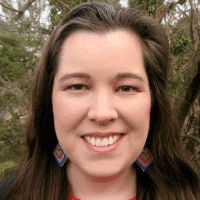
|
|
Eric Cooper and Naomi W. Siegel
Dr. Eric C. Cooper and his wife, Naomi W. Siegel, established the Cooper-Siegel Professorship in the College of Fine Arts in 2005 to support a junior faculty member who specializes in art or music. Dr. Cooper is a former faculty member in the School of Computer Science and is a Carnegie Mellon trustee. Naomi Weisberg Siegel is the daughter of two Carnegie Mellon University graduates: Rebecca Weisberg Siegel, who earned a Bachelor of Fine Arts in music and music education from the College of Fine Arts in 1952, and Robert Ted Siegel, who earned a Bachelor of Science in 1948, a Master of Science in 1950 and a doctorate in 1952, all in physics, from the Mellon College of Science.
|
|
School of Computer Science
|
Henny Admoni
A. Nico Habermann Assistant Professor, Robotics Institute
Henny Admoni is an Assistant Professor in the Robotics Institute at Carnegie Mellon University, where she leads the Human And Robot Partners (HARP) Lab. Dr. Admoni studies how to develop intelligent robots that can assist and collaborate with humans on complex tasks like preparing a meal. She is most interested in how natural human communication, like where someone is looking, can reveal underlying human intentions and can be used to improve human-robot interactions. Dr. Admoni's research has been supported by the US National Science Foundation, the US Office of Naval Research, the Paralyzed Veterans of America Foundation, and Sony Corporation. Her work has been featured by the media such as NPR's Science Friday, Voice of America News, and WESA radio.
Previously, Dr. Admoni was a postdoctoral fellow at CMU with Siddhartha Srinivasa in the Personal Robotics Lab. She completed her PhD in Computer Science at Yale University with Professor Brian Scassellati in the Social Robotics Lab. Her PhD dissertation was about modeling the complex dynamics of nonverbal behavior for socially assistive human-robot interaction. Dr. Admoni also holds an MS in Computer Science from Yale University, and a BA/MA joint degree in Computer Science from Wesleyan University.
|
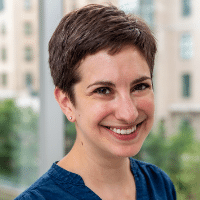
|
|
Nico Habermann
Corporations, colleagues, friends and former students established the A. Nico Habermann Professorship in Computer Science in 1997, in his memory, to support a faculty member in the School of Computer Science. Nico Habermann served as an associate professor in 1969, a full professor in 1973, acting department head in 1979 and founding dean of the School of Computer Science in 1988. He was also instrumental in establishing the Software Engineering Institute and served as its first director in 1985. Professor Habermann passed away in 1993.
|
|
|
Fei Fang
Leonardo Assistant Professor, Institute for Software Research
Before joining CMU, Fei Fang was a Postdoctoral Fellow at Harvard University, hosted by David Parkes and Barbara Grosz. She received her Ph.D. from the University of Southern California, advised by Milind Tambe (now at Harvard).
Dr. Fang’s research lies in the field of artificial intelligence and multi-agent systems, focusing on integrating machine learning with game theory. Her work has been motivated by and applied to security, sustainability and mobility domains, contributing to the theme of “AI for Social Good.” Her work has won the Distinguished Paper at the 27th International Joint Conference on Artificial Intelligence and the 23rd European Conference on Artificial Intelligence in 2108, Innovative Application Award at Innovative Applications of Artificial Intelligence in 2016 and the Outstanding Paper Award in Computational Sustainability Track at the International Joint Conferences on Artificial Intelligence in 2015. She was invited to give an IJCAI Early Career Spotlight talk in 2019 and was named to IEEE Intelligent Systems’ “AI's 10 to Watch” list for 2020. She received a National Science Foundation CAREER Award in 2021. Her dissertation was selected as the runner-up for IFAAMAS-16 Victor Lesser Distinguished Dissertation Award and was selected to be the winner of the William F. Ballhaus, Jr. Prize for Excellence in Graduate Engineering Research as well as the Best Dissertation Award in Computer Science at the University of Southern California.
Her work has been deployed by the U.S. Coast Guard for protecting the Staten Island Ferry in New York City since April 2013. Her work has led to the deployment of PAWS (Protection Assistant for Wildlife Security) in multiple conservation areas around the world, which provides predictive and prescriptive analysis for anti-poaching efforts.
|
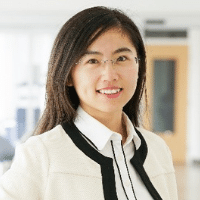
|
|
Leonardo S.p.A
The Leonardo Career Development Chair was established in 1989, under the original name of the Finmeccanica Career Development Chair, to support faculty members in the School of Computer Science who conduct work in areas of interest to Finmeccanica (S.p.A.), now known as Leonardo (S.p.A.).
|
|
Carnegie Mellon University programs and events are open to all alumni, regardless of race, color, national origin, sex, handicap or disability, age, sexual orientation, gender identity, religion, creed, ancestry, belief, veteran status or genetic information.